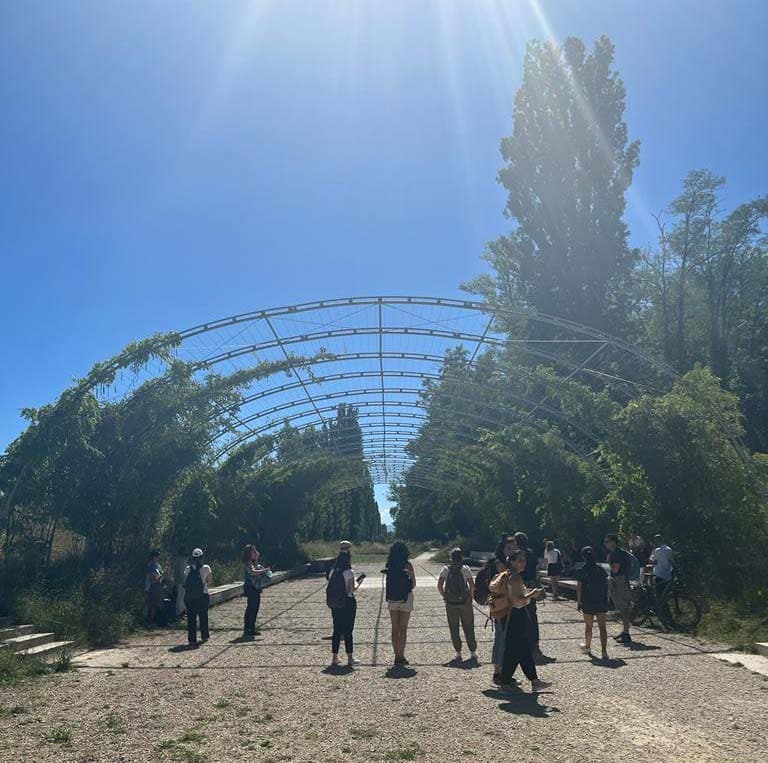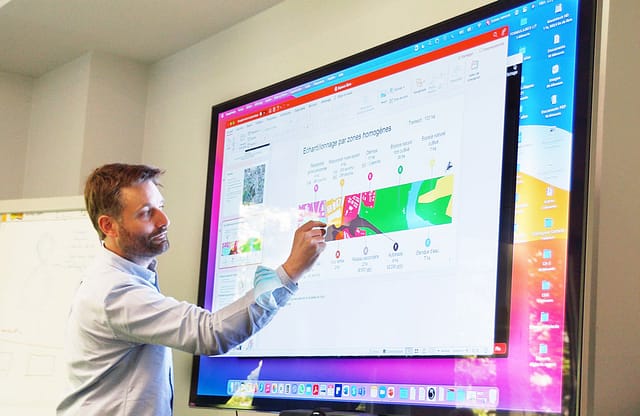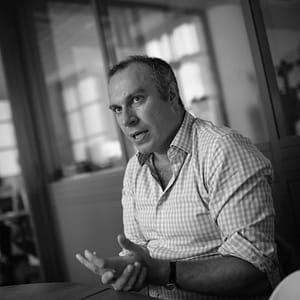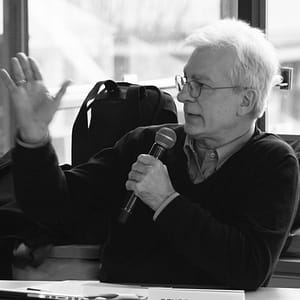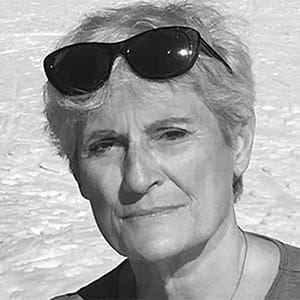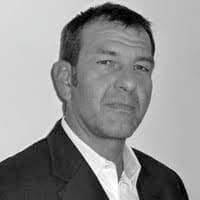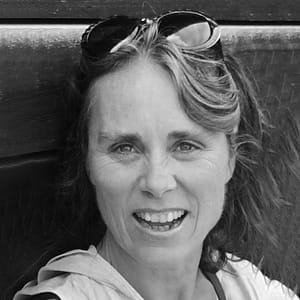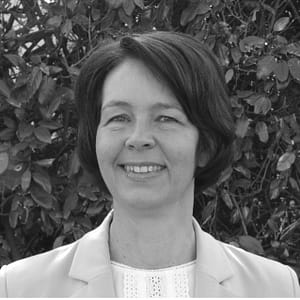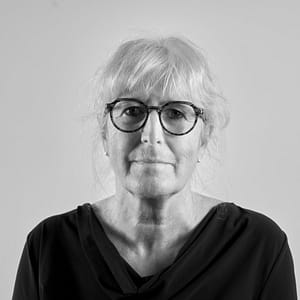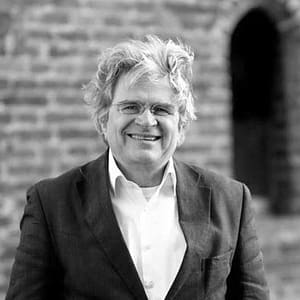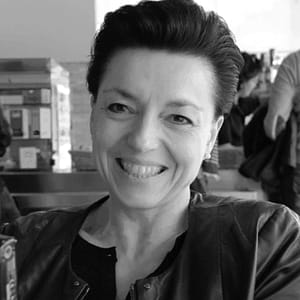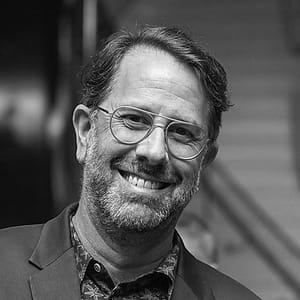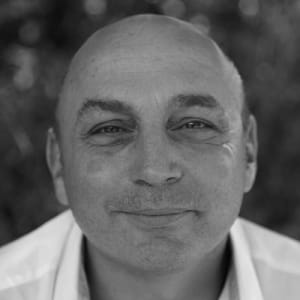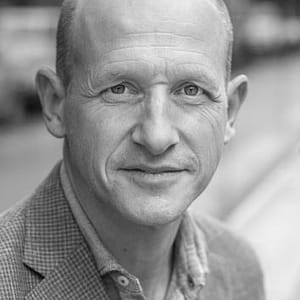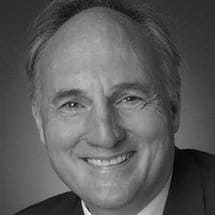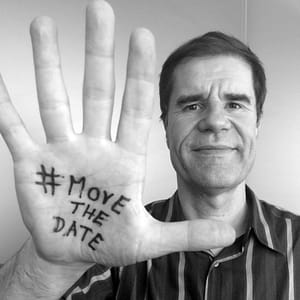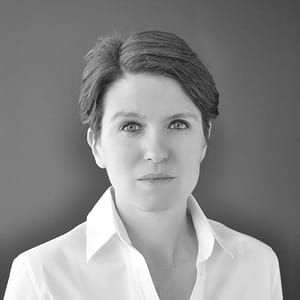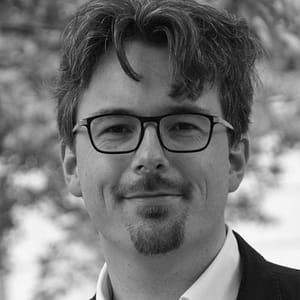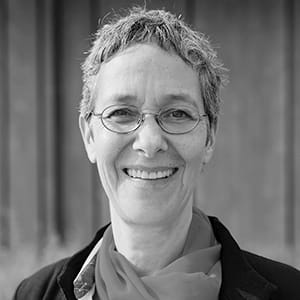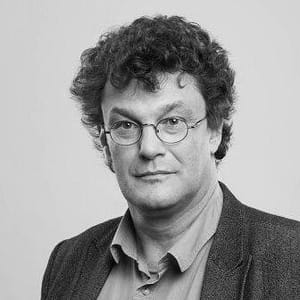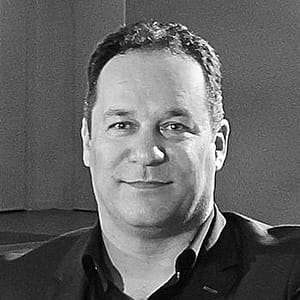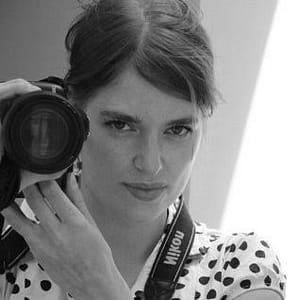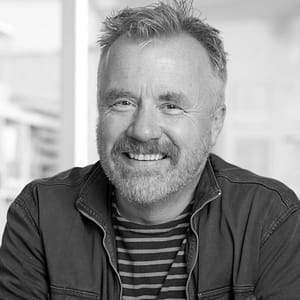No products in the cart.
Account
Login
Cart
Découvrez le programme enrichissant de notre module Theory Masterclass. Pour vous immerger pleinement et participer à l'ensemble des cours proposés, cliquez sur ce lien pour vous inscrire.
Si vous préférez, il est également possible de s'inscrire à des sessions spécifiques ou de choisir des cours individuels selon vos intérêts et besoins.
1. Introduction : The challenge of the transition project
Geopolitics in the Age of the Anthropocene
05 Feb. 2026, 09:00 – 11:00 | François Gemenne Bio
Our entry into the Anthropocene, this new geological epoch which follows the Holocene, and in which humans are the main forces of change on the planet, requires a profound renewal of the social sciences, and geopolitics is primarily concerned by this revolution. It is now becoming impossible to distinguish between the Earth and the world, which would only be the political and social organization of the planet.For a long time, environmental issues were kept out of politics: the Earth was ruled by physical and biological laws, while the world was ruled by political and economic laws. This separation has notably led to the current ecological crisis, which has made many geologists say that we have now changed geological epochs. In the Anthropocene, the laws of nature overtook those of human history and geography.And this transformation of human relations with the Earth requires, in order to think about this new Earth, to invent a new geopolitics, or – to use an expression of Bruno Latour – a Gaïapolitics: literally, an Earth policy.
Planetary Boundaries: What Lessons?
05 Feb. 2026, 11:00 – 13:00 | Dominique Bourg Bio
The idea is to provide an overview of global challenges with three main entries: climate change, the collapse of biodiversity, especially arthropods, and a state of resources with some key benchmarks. We will also address the democratic, social and cultural context within which responses to the challenges must be constructed. We will then sketch out some possible solutions by focusing on three main axes: the economy with the idea of permacircularity, democratic institutions, and finally the cultural shift that is currently taking place.
The Ecological Transition by Design. A brief Introduction
05 Feb. 2026, 14:00 – 16:00 | Panos Mantziaras Bio
In tribute to James Lovelock and Bruno Latour, this introduction to the 2025 season propses an articulation between environmental emergencies, the innovative potential of the design disciplines and the pathways towards the decarbonization and resilience of cities and regions in the short, medium and long term.
Climate Change: towards a warmer world
06 Feb. 2026, 09:00 – 11:00 | Marie-Antoinette Mélières Bio
Ecology & the Greater Geneva
05 Feb. 2026, 16:00 – 18:00 | Sylvain Ferretti Bio
Ten Fundamentals of Systems Ecology Applied to Farming and Food Provisioning
06 Feb. 2026, 11:00 – 13:00 | Marjolein Visser Bio
Architects, urbanists, engineers and even landscape designers are trained to focus on building the places and spaces we live in, thus externalizing key aspects dealing with agriculture, ecology and food. So urbanisation typically ignores food needs and disables food growing. The first ambition of this workshop is to introduce a number of universal principles and concepts comings from systems ecology applied to agriculture and our agrarian past, present and future. While doing this, a wealth of further readings will be suggested to indeed further feed a food-enabling urbanism. The second ambition is to give practical hints for personal and collective regrounding toward genuine “food care” overall. Taken together, these elements should unlock fresh pathways to tackle our common 21st century challenges, through the prism of food.
Hydrological Transitions for Mountain Metropolises
06 Feb. 2026, 14:00 – 16:00 | Carmen De Jong Bio
Water resources are essential for humanity. Today, major challenges concerning water resources include the identification of the spatial and temporal dynamics of water availability and how these are impacted by climate change and anthropogenic pressure. The vulnerability and resilience of water resources depend on their geographic context, from mountains to plains, across arid to humid climates, and the extent of impact from water abstraction. The course covers these general themes and concludes with a special focus on the Greater Geneva Region. This will include the role of water supply from Lake Geneva and its surrounding glaciers, the impacts of climate change such as severe glacier retreat, heatwaves, and droughts, as well as groundwater lowering. The course ends with perspectives on responsible water management.
Urban Soil: Inert Surface or Living Resource?
06 Feb. 2026, 16:00 – 18:00 | Elena Havlicek Bio
Soil is a functional interface of all terrestrial environments, whether natural, agricultural, or urban. To understand soil, its role, and its functions, it is essential to place it within the broader functioning of ecosystems. The first part will focus on the principles of ecosystem functioning, soil formation, and the properties that determine how humans use them.Urban soils are often degraded, contaminated, and scarce in cities. The second part will explore their crucial role in water and climate regulation, as well as potential strategies for their rehabilitation.Urban Soils: (Part of) the Solution for Sustainable Cities?
Coordination session #1 Geneva 2050
07 Feb. 2026, 09:00 – 13:00 | Panos Mantziaras Bio
Review session of the introductory part of the Theory Masterclass and visit to the neighborhood selected for the Design Studio.
2. Parameters and dimensions
Metrics for the ecological transition
05 Mar. 2026, 09:00 – 11:00 | Panos Mantziaras Bio
Why do we need to measure the progress of the ecological transition? How has the climate and its warming led us to establish a whole new generation of impact metrics and – even more importantly – of accountability metrics in these areas? In what crucial ways does decarbonization differ from resilience when we get to measure them? These questions will be addressed through a brief recourse to history, physics, chemistry, biology, but also to economics, the sociology of actors and, last but not least, design and planning. The objective is to arm participants with cross-knowledge tools, to help them build their own lines of reasoning for their future practice as transition strategists.
Four Escape Routes from Modernism
05 Mar. 2026, 11:00 – 13:00 | Dirk Sijmons Bio
Mobilis in Mobile is a lecture about the question how we find guiding principles for policy and design with the wicked environmental problems of the Anthropocene. Four different worldviews, and the way they influence the perspectives for action. Next to these worldview the lecture also deals with the professional niches we could choose. Combining these two formative elements offers at least sixteen different positions a reflective practitioner could use to confront the challenges of the Age of Mankind.
Regional Planning, Physiographic Determinism: The Spatial Design as Human Ecology?
05 Mar. 2026, 14:00 – 16:00 | Catherine Maumi Bio
This course will revisit the ideas put forward throughout the 20th century by various Anglo-Saxon personalities—including forestry engineers, urban planners, and landscape architects—who were concerned with the medium- and long-term consequences of human action on the environment. Rooted in an intellectual lineage dating back to the 19th century (Thoreau, Marsh), these thinkers sought to explore and experiment with design methodologies that embraced a different relationship with nature and a mode of human settlement more respectful of resources, ecosystems, landscapes, and human beings.
Set apart from debates and initiatives focused on strengthening nature conservation, these ideas remain particularly relevant because they aim to establish the foundations of a science of human settlements on Earth—one that prioritises the preservation of its fundamental balances.
Architecture, History and Decarbonisation
05 Mar. 2026, 16:00 – 18:00 | Daniel Barber Bio
From Ecosystem Services to Sustainable Development
06 Mar. 2026, 09:00 – 11:00 | Anthony Lehmann Bio
In this course, we explore the evolution of the concept of Ecosystem Services highlighted in the 2005 UN report entitled “Millennium Ecosystem Assessment” which led to the creation of the Intergovernmental Platform on Biodiversity and Ecosystem Services (IPBES) ten years later. We will analyse the data and tools used to quantify and map these services, and we will examine the limitations of this approach when addressing Sustainable Development Goals (SDGs). This reflection will lead us to the concept of the Nexus formed by the different SDGs and their dependence on services provided by nature.
Practical Advice for Incorporating Biodiversity and Climate into Projects and Plans
06 Mar. 2026, 11:00 – 13:00 | Martin Schlaepfer Bio
In this lecture we will cover different approaches to ensuring that biodiversity and climate related concerns are integrated into projects and plans. First, we will discuss theoretical notions such as negative externalities and telescoping that are particularly relevant in developed cities such as Geneva. Then, we will cover different visions of sustainability, existing targets (for both climate and biodiversity), possible pathways to reach these targets, and indicators that measure progress. Finally, we look at existing tools that can mainstream biodiversity and ecosystem services.
Satellite observation and cartography of climate change
06 Mar. 2026, 14:00 – 16:00 | Peter Droege Bio
Living in the Era of Persistent Overshoot : What Will Gain in Value ?
06 Mar. 2026, 16:00 – 18:00 | Mathis Wackernagel Bio
Our economies are doing Bernie Madoff pyramid schemes with the planet (we are taking the resources of the future to pay for the present). As a result, humanity’s demand on nature today exceeds what Earth can replenish, eroding our natural capital and jeopardizing future regeneration of resources. Like any such system, this one, if not followed, can only lead to collapse. Such a catastrophe would destroy much of the progress of mankind.
Coordination session #2
07 Mar. 2026, 09:00 – 13:00 | Gwenaëlle Zunino Bio
Review session for the second part of the Theory Masterclass
3. The human factor
The Second Fall from Paradise. Philosophical Considerations on the Ecological Transition between Consciousness and Action
23 Apr. 2026, 09:00 – 11:00 | Panos Mantziaras Bio
As the world enters a political and economic whirlwind that is diverting humanity from the trajectory of decarbonization and resilience, it is important to return to a body of essential references to find the direction of our actions. Consolidated in the long human experience by narratives as much mythological and spiritual as scientific and technical, this body of work reconstitutes an essential philosophical reference point for navigating with hope and determination towards the horizon of ecological transition.
Behavioral Perspectives for Sustainable Action: Psychological Barriers and Levers
23 Apr. 2026, 11:00 – 13:00 | Tobias Brosch Bio
Developing a more sustainable way of life is one of the most urgent tasks facing our planet and its inhabitants. While the majority of people are now aware of such issues, such as climate change or biodiversity loss, too little is being done to translate this knowledge into concrete and sustainable action. To promote the necessary behavior changes, research is studying the determinants of sustainable behavior, and policymakers have started to apply behavioral knowledge to develop new intervention strategies. In this presentation, we will discuss the most recent psychological knowledge about the factors that can motivate people to take sustainable actions or that can hinder those actions. Different intervention strategies aimed at promoting sustainable action, such as information provision, motivational approaches and “nudges” will be presented and discussed.
An integrative perspective on the energy transition (to be confirmed)
23 Apr. 2026, 14:00 – 16:00 | Claudia R. Binder Bio
The current climate, energy and societal crises have shown that we need new tools for designing measures and strategies for achieving a more sustainable future. At the core of addressing the challenges is the energy transition. Scholars have found that the transition towards a low-carbon energy regime requires not only the development of new energy technologies but also deep-structural changes in society: these concern radical, systemic shifts in values and beliefs, in patterns of social behavior, and in governance regimes. Recently the term of Social Tipping Points (STPs) has been coined as being crucial to design policies that push societies towards sustainable transition pathways and support urgent climate action. STPs are defined as “non-linear processes of transformative change in social systems”. After surpassing a certain threshold, both the structure and the dynamics of the system change, and strongly reinforcing feedbacks emerge which can amplify a small change, leading to a new state of limited reversibility. This contribution will provide systemic understanding of transition pathways and invite on the reflection of STPs.
Transitions: what to do with mobility in architecture?
24 Apr. 2026, 09:00 – 11:00 | Vincent Kaufmann Bio
The UN has identified three strategies for decarbonizing mobility, emphasizing that they complement each other: technological innovation and optimization of transportation systems, modal shift from cars and airplanes to less polluting modes of transportation, and avoidance of motorized travel. However, several recent studies show that the vast majority of cities and countries around the world rely solely on innovation to decarbonize mobility and achieve the neutrality goals set by the Paris Climate Agreement (2015) for fear of impacting lifestyles. Yet achieving these goals requires acting on all three identified levers together. The fear of public authorities acting on modal shifts and the avoidance of motorized travel is undoubtedly unfounded, given that a significant portion of the population is ready to take the step. Regarding the social aspects of mobility, it is also notable that when measures are taken to discourage the use of automobiles, they are often blind to social inequalities and provoke rejection among the working classes, particularly because of the often particularly strong dependence on automobiles in these population categories. This is particularly due to the fact that they proceed by adding taxes that are supposed to be incentives and which concern more polluting vehicles (vignettes), access to certain areas (tolls) or the price of parking. Multiple examples could be cited throughout the world. The Yellow Vests in France, of course, but also the extension of London's urban toll, the price of transport in Santiago, Chile, and the Swiss people's rejection of the CO2 law in 2022. The risk of these political errors lies in nothing less than the abandonment of carbon neutrality policies due to a lack of popular support. Faced with these observations, it is imperative to conduct a fundamental reflection on space at all scales to develop territorial planning that allows and encourages the adoption of lifestyles free from dependence on mobility.
Environmental law (to be confirmed)
23 Apr. 2026, 16:00 – 18:00 | Lena Nussbaumer-Laghzaoui Bio
Post-Carbon Neighborhoods: Transformation, Hybridization, Adaptation
24 Apr. 2026, 11:00 – 13:00 | Emmanuel Rey Bio
As an intermediate scale between the city and the building, neighborhoods are poised to play a central role in the regeneration of urban areas in transition. It is in this context that a collective intuition is emerging that a new generation of neighborhoods in transition needs to be invented to truly embrace a post-carbon perspective. Aiming for a drastic reduction in greenhouse gas emissions and a significant adaptation of the urban environment to climate change, new approaches are emerging that more intensively combine actions of resource efficiency, effectiveness, circularity, and adaptability. By leveraging the proliferation of short supply chains, the increased value placed on existing resources, and the creation of new, productive networks, post-carbon neighborhoods are thus destined to play an essential role in the resilience and livability of already urbanized areas.
Methods and measures for building decarbonisation
24 Apr. 2026, 14:00 – 16:00 | Sanne van der Burgh Bio
Design in the Age of Emergency (to be confirmed)
24 Apr. 2026, 16:00 – 18:00 | Duncan Baker-Brown Bio
Coordination session #3 Decarbonization Fresk
25 Apr. 2026, 09:00 – 11:00 | Panos Mantziaras Bio
Coordination session about the third part of the Theory Masterclass. This session is part of the full curriculum only.
4. The building factor
International Consultations: Geneva
28 May. 2026, 09:00 – 13:00 | Greater Geneva Consultation Teams Bio
Special roundtable discussion on the seven projects and visions proposed during the International Consultation on Greater Geneva.Presentations and discussions with some of the finalist teams.
International Consultations: Luxembourg
28 May. 2026, 14:00 – 18:00 | Greater Luxembourg Consultation Teams Bio
Special roundtable discussion on the projects and visions proposed during the International Consultation on Greater Luxembourg.Presentations and discussions with some of the finalist teams.
Transformations in European cities: the case of IBA (Germany)
29 May. 2026, 09:00 – 11:00 | Johannes Novy Bio
Transformations in European cities: the case of Scandinavia
29 May. 2026, 11:00 – 13:00 | Sisse Canguilhem Bio
Transformations of Swiss cities: part 1
29 May. 2026, 14:00 – 16:00 | Program
Transformations of Swiss cities: part 2
29 May. 2026, 16:00 – 18:00 |
Coordination session #4
30 May. 2026, 09:00 – 13:00 | Panos Mantziaras Bio
Final coordination and preparation session before Design Studio 2025:Final report of the Theory Masterclass Presentation of the essay and writing recommendations
Design Studio
Regenerative city
Biosourced architecture
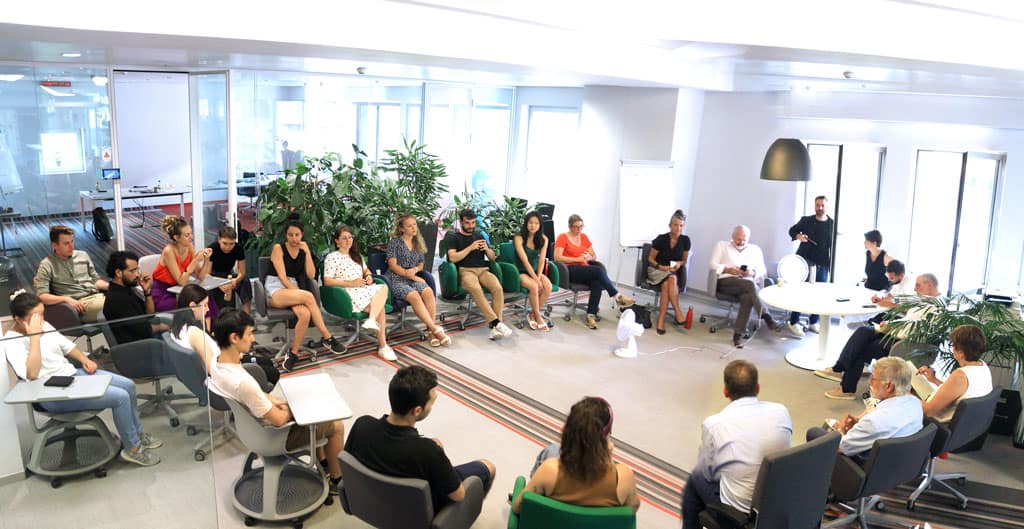
Geneva offers an exquisite natural, social and cultural setting, as much as a unique international nexus for environmental advocacy. Within it, global governance bodies and experts, such as the UN, UNEP, UN-Habitat, UNHCR, and WMO convene to shape policies for sustainable development. Simultaneously, cantonal and communal authorities spearhead large-scale strategies and innovative projects.
The Design Studio, second module of the Transition Workshop, offers an unparalleled opportunity to hone your skills at this dynamic convergence of personalities, strategies, and tactics.
Over two intense weeks, instructors and participants in the Design Studio craft ecological transition scenarios based on case studies situated in collaboration with the Canton of Geneva. The process is enriched through lectures, interviews, site visits, research, and collaborative design efforts. A pre-jury evaluation takes place at the end of the first week, followed by a final presentation before a jury comprising stakeholder representatives and professionals in urban ecological transition. Proposed scenarios materialize in various forms:
- Imaging techniques (manual, technical, CAD),
- Design of demonstrators integrated into the general masterplan,
- Speechwriting and Storytelling,
- Animations and simulations.
The output of the Design Studio is showcased at the start of the following academic year during the Geneva Seminar, the annual public event of the FBA, and in the publication of a Recommendations Handout for stakeholders.
Design Studio 2024 | 1st to 12th July
Ecological Densities II
Urban areas face today a dual challenge: the pressure of demographic growth from incoming populations and the imperative to anticipate future climatic conditions, necessitating the development of resilience strategies.
This dual challenge calls for integrated urban foresight and architecture projects that will:
a. preserve the quality of life,
b. foster the presence of nature,
c. extend collective cohesion.
The municipality of Versoix presents a compelling case to the Transition Workshop, offering a study of the feasibility of these three-fold solutions. Situated between lake and mountain, with communal, cantonal, and national borders, amidst aircraft noise and adjacent to major road networks, the municipality seeks to chart a new course to meet the needs of its residents.
Bioclimatic design, the use of recycled and bio-sourced materials, and urban metabolism will form the core of new urban and architectural projects, building upon the methodology established within the Transition Workshop coined under the term Ecological Densities.
Explore past Design Studios where Transition Fellows engaged in similar endeavors.

 Fondation braillard architectes
Fondation braillard architectes